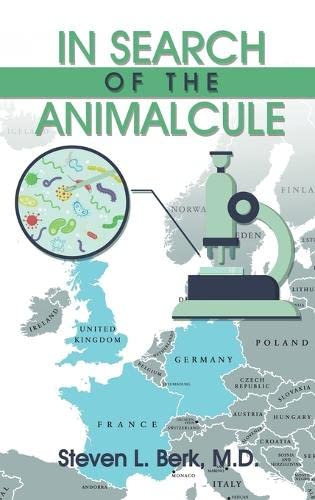In Search of the Animalcule is an amazing story that follows a young man named Jacob. Born in the mid-1800s in Vienna and raised in an orphanage after his mother dies two days after his birth of childbed fever, Jacob makes remarkable discoveries with mentors Dr. Louis Pasteur, Dr. Robert Koch, and Dr. Joseph Lister who are all well-known historical figures in the world of medicine. As one of the very few women obstetricians in Europe, Jacob’s mother knows she is ill and will pass away soon after Jacob’s birth. At twelve years old, Jacob vows to find out what caused his mother to have childbed fever, and what he discovers is something he calls animalcules, known to us now as bacteria. Jacob searches for his father, a winemaker in France, and is introduced to Louis Pasteur. Pasteur is trying to find out why the wine grapes are going sour and welcomes Jacob under his wing.
This book had me engaged within the first chapter. As someone who has always enjoyed science and learning about its history, I found this book to be mesmerizing. Although Jacob is a fictional character, author Steven L. Berk, M.D. does an absolutely spectacular job of inserting him into the lives of real scientists and doctors from the 1800s. Jacob is naturally inquisitive and intelligent and has a bold personality that shows his drive to figure out more about animalcules. As he studies them under the microscope, he notices different diseases and ailments are caused by differently shaped animalcules. Some of them are rod-shaped, yet others are in clusters or clumps. What we know now in the medical world stems from this early research and infectious disease experts can use the information to create cures and vaccines for many of the diseases we see today. Back in Jacob’s day, there were no cures for diseases such as yellow fever or childbed fever. Now, we don’t think twice about getting an antibiotic prescribed.
After Jacob works with Pasteur for seven years, saving the wine grapes, discovering pasteurization, and solving the problem of dying silkworms, he moves on to work with Dr. Joseph Lister on germ theory in Scotland and later with Dr. Rober Koch. The stories of the patients that Jacob treats with Lister and Koch actually come from the files of real patients which adds to the realistic feel of the book. Berk does a fantastic job of meshing his fictional characters into the historical backdrop of Europe in the 1800s. If he had not specified what part of the book was fiction versus non-fiction, I would have believed this story in its entirety. The characters, setting, dialogue, interactions between characters, and the real-life facts in this book really bring In Search of the Animalcule to life. I would recommend this book to anyone who is interested in medical sciences, specifically infectious diseases. Noted is the author’s special dedication at the back of the book “to all physicians who wash their hands after seeing each patient.” Yes, thank you very much for washing your hands.

